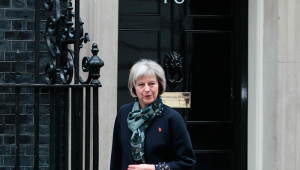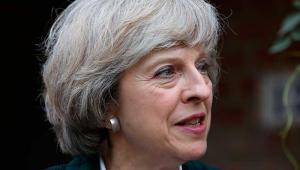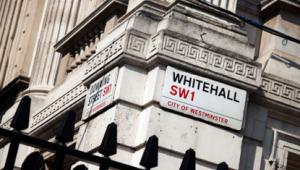In an analysis of how to drive policy change across government, the Institute for Government and the Joseph Rowntree Foundation stated “many policies seem to exist on a merry-go-round of investment and decline: investment when a crisis lands it on the front page, decline when it slips from public view.”
Today’s Making Policy Stick report analysed why successive UK governments have struggled to tackle entrenched national problems, such as the housing crisis, inequality and climate change.
According to the IfG, May’s flagship pledge when becoming prime minister to tackle the “burning injustice” of inequality in the UK was in danger of running aground, and there is a narrowing window of opportunity within which she will have sufficient political capital to make the necessary changes.
The report noted that she began her premiership from a weaker position than that afforded to an incoming prime minister with an electoral mandate. Also, the complex preparations ahead of Britain’s exit from the EU are draining governmental resources – and political capital – that could otherwise be used to implement a bold domestic agenda.
Moreover, May’s government has committed to pursue previous chancellor George Osborne’s departmental spending plans to cut spending by £10bn by 2019/20. These factors could pose real difficulties for the prime minister’s social mobility agenda, particularly if achieving them will require upfront investment to unlock future benefits.
The abolition of the Prime Minister’s Strategy Unit in 2010 meant the government lacked a dedicated capacity for strategic planning in the centre of government. This, the think-tanks said, made it more difficult for government to focus on long-term goals.
However, failure was not inevitable, and the report makes several key recommendations for leaders of government, drawing on examples of long-term policies have been successfully implemented.
First, it was important to choose specific targets. In 1997, the Irish Government made strides in poverty reduction only when it decided to target the ‘consistently poor’.
Also, a special unit or strong leader is an effective way to supply the focus and resolve needed to embed it. The report cited the example of the Rough Sleepers Unit led by Louise Casey, who reported directly to then prime minister Tony Blair, which reduced rough sleeping by a third.
In addition, leaders should aim to create work that outlives their own political career. Gordon Brown, for example, brought in legislation to force his successors to publish new carbon budgets every five years.
The report also highlighted that help from outside of government can also create lasting policies. This was the case with the Department for International Development, which was founded with the assistance of charities. This helped to create a powerful lobby that continues to hold ministers to account.
IfG programme director Emma Norris highlighted that May is the latest in a line of prime ministers to pledge to tackle inequality. “So if she wants to be the first PM to make real progress on tackling social inequality, she needs to get going.
“However, this is no easy task, with Brexit casting a long shadow. But this is about more than her legacy – this is about dealing with systemic issues in this country. And this is how she can really make policies that work for everyone.”




















